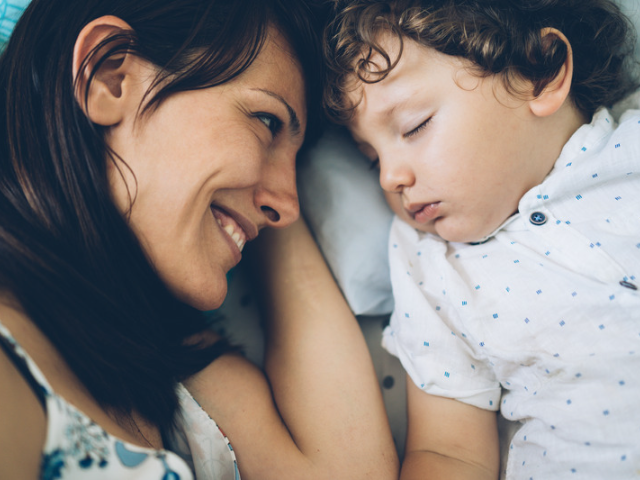Getting good sleep can be quite elusive to many children. I know from experience just how big of an impact sleep deprivation can have on our ability to function at an optimal level. I have learned many things along my parenting journey that may just help you and your child get that restful night of sleep you need.
Follow a routine
Bedtime routines are very important for people of all ages because they signal to the body that it’s time to start calming down to prepare for sleep. You probably already have some bedtime routine in place, even if you haven’t consciously created it, so thinking about what your current routine looks like and considering whether or not it is conducive to a restful night can be a great place to start.
Next, if you’re not already doing so, try stopping all electronics (TV, mobile phones, iPads, etc.) at least one hour before bedtime (read more about how electronics can negatively impact sleep here). Other parts of a restful bedtime routine may include taking a bath (you can include Epsom salts if appropriate for your child), reading, listening to soft music, toothbrushing, and providing your child with calming sensory input.
Setting up the environment for good sleep
Remember that it is important to consider things that may need to be removed from your child’s bedroom in order to make their sleeping environment less stimulating. On the flip side, there are also things that you can add to your child’s room that may help them to relax. For example, many children do well with deep pressure, so a weighted blanket or compression sheet may be a good option to explore. Other suggestions include a fan or white noise machine, soft music, a night light (be sure it’s not too bright), and essential oils.
Essential Oils
A number of essential oils are known for helping with relaxation and sleep. Lavender is usually the first one that people think of, and it works beautifully for some people, but it tends to be a “love it or hate it” scent and can make some people hyper. Like with most things, people can react differently to essential oils, so it may take some trial and error to figure out the best oil or blend of oils to promote sleep for each person. Personally, I am a big fan of this set from Plant Therapy. These oils can be diffused in the child’s bedroom or used to make a homemade lotion or pillow spray. Remember that it is important to follow safety guidelines for appropriate dilution. You can find more information on proper usage here.
Share the Load
Even with all the “right” things in place, you may still experience sleepless nights. If you have a spouse, partner, co-parent, etc., try taking shifts or trading off nights of who is supervising your child when awake, so the burden of not sleeping doesn’t all fall on one person. You might also ask a friend or family member to come over and spend some time with your child during the day/evening so you can grab a nap.
I hope this article gives you some ideas on creating an environment and tips for improving sleep for your child and your whole family. You may also find part 1 of this series, where I discuss underlying causes of sleep issues, quite useful!
Related articles
Understanding Gluten-Free/Casein-Free Diets
Getting Good Sleep During COVID




